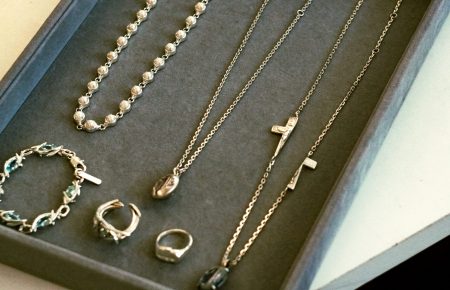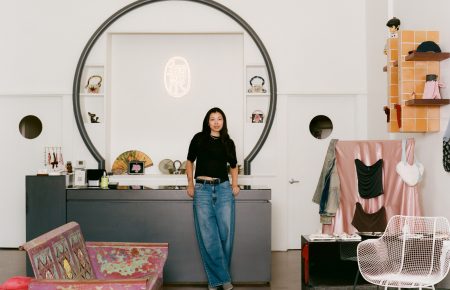As the discussion around the climate crisis continues to gain attention and with it, serious consideration on how to actually solve it, multiple industries will have to face the question of whether more consumerism is the answer.
Movers in the space
- Maxine Bédat: Founded the widely anticipated ethical fashion brand Zady before ending it to launch the New Standard Institute, a non-profit data hub that supports research and publishes findings on best practices to “right misinformation wrongs” in the ethical fashion space.
- Orsola de Castro: started her own upcycle label before co-founding ethical fashion advocacy group Fashion Revolution.
- Céline Semaan: used to ethically manufacture accessories and garments before starting Study Hall, a UN-backed series of sustainability-centric conferences.
- Rachel Kibbe: ran a multi-brand ethical fashion e-tailer before turning her company Helpsy into the largest used clothing collector in the Northeast.
- Shannon Lohr: Founded Factory45, an ethical brand accelerator program.
Of all the above interviewed, not a single one answered that the key to advancing the sustainable fashion movement was more brands, which suggests an uncomfortable cultural truth we will have to face: more is still more.
Vicious cycles
Current culture reveres if not deifies entrepreneurship to the point that it is now a social marker to be a founder of something, including brands that innovate to produce something new. Even within entrepreneur culture, a business is framed as the ultimate means of “doing good,” which attracts even more people to the space to fulfill that ideal.
And that space is already saturated and still dominated by big companies. Sustainability conference Copenhagen Fashion Summit is partly funded by H&M, Nike, Kering, and Target, showing that top players are clinging to a leading role in driving sustainability—even if they’re ill-equipped to do so as brands. This could be compared to the coal industry’s fight to remain in business and relevant to the clean energy movement even though its ideals are incompatible with the goals.
“Humanitarianism and entrepreneurship are actually distinct things.”
In his book Winners Take All: The Elite Charade of Changing the World, reporter Anand Giridharadas writes: “Often, when people set out to do the thing they are already doing and love to do … and they promise grand civilizational benefits as a spillover effect, the solution is oriented around the solver’s needs more than the world’s — the win-wins, purporting to be about others, are really about you.”
The unfortunate reality we are in now is one where we’re actually forced to evaluate and weigh our tangible individual freedom against an abstract greater good far off elsewhere in the world and in the future. Concerns about the environment have lead to people giving up plastic straws, later meat and eventually fossil fuels. These are all in line with how much of our comforts we are willing to give up for the planet.
But comforts are not life purposes, and things are getting to the point where we might have to consider changing those too. With overpopulation a concern, people are considering not having children, not only a traditionally major part of our life cycles but also a source of meaning in a conflicted world. This is not meant to equate having children with founding a fashion label, but because both are sources of meanings and well within the vast realm of possibilities we enjoy in the first world, should we change our life goals to suit the planet or exercise our freedom to stay the course—accomplish what we want, how we want it and when we want it?





























